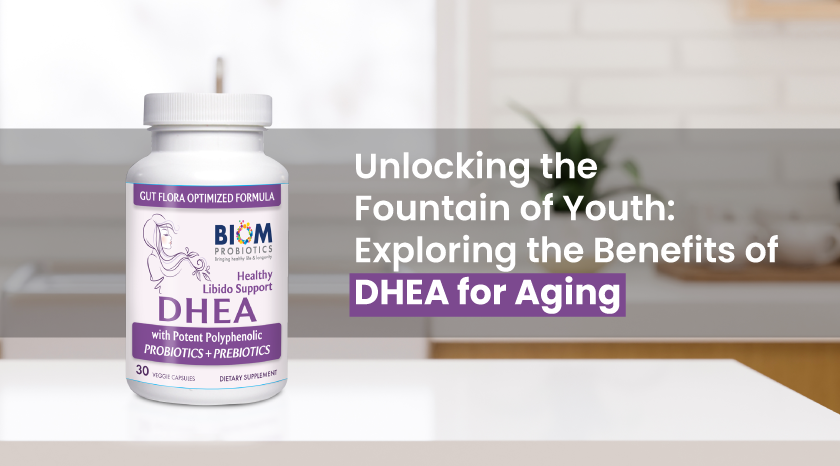As we navigate the journey of life, the inevitability of aging becomes a central concern for many individuals. In the pursuit of maintaining vitality and well-being, various supplements and hormones have gained attention. One such compound that has sparked interest is Dehydroepiandrosterone (DHEA), often touted as a potential anti-aging elixir. In this blog, we’ll delve into the science behind DHEA and explore its purported benefits for aging individuals.
Understanding DHEA: DHEA is a hormone produced by the adrenal glands, playing a crucial role in the synthesis of other hormones such as estrogen and testosterone. As we age, DHEA levels naturally decline, leading researchers to investigate its potential impact on various aspects of aging.
- Cognitive Function: Research suggests that DHEA may have a positive influence on cognitive function. Studies have explored its potential in enhancing memory, improving concentration, and even reducing the risk of neurodegenerative diseases. While more research is needed, the initial findings are promising, offering a ray of hope for those seeking to maintain mental sharpness as they age.
- Bone Health: Aging is often accompanied by a decline in bone density, leading to conditions like osteoporosis. Some studies propose that DHEA supplementation may contribute to maintaining bone health by promoting bone density. This could be particularly beneficial for postmenopausal women who are at an increased risk of bone-related issues.
- Immune System Support: The immune system undergoes changes with age, potentially leaving individuals more susceptible to infections and illnesses. DHEA has been investigated for its immunomodulatory effects, suggesting that it might play a role in supporting the immune system. Strengthening the body’s defense mechanisms could be a valuable asset in the quest for healthy aging.
- Mood and Well-Being: Hormonal fluctuations during aging can impact mood and overall well-being. Some studies propose that DHEA may have antidepressant and mood-enhancing effects. While results are mixed and more research is needed, exploring the potential link between DHEA and emotional well-being remains an intriguing avenue.
- Metabolic Health: Maintaining a healthy metabolism becomes increasingly challenging with age. DHEA has been studied for its potential role in improving insulin sensitivity and managing weight. These metabolic benefits could contribute to overall health and longevity.
While the concept of a “fountain of youth” remains elusive, the exploration of compounds like DHEA offers a glimpse into potential strategies for healthy aging. It’s important to note that individual responses to DHEA supplementation may vary, and consulting with a healthcare professional before initiating any supplementation is crucial.
As research continues to unravel the mysteries of aging, DHEA stands as a fascinating subject of study. While its benefits hold promise, a holistic approach to aging, including a balanced diet, regular exercise, and other healthy lifestyle choices, remains fundamental. In the pursuit of longevity and well-being, embracing a multifaceted strategy that incorporates both scientific advancements and time-tested practices may be the key to unlocking a fulfilling and vibrant life as we age.





